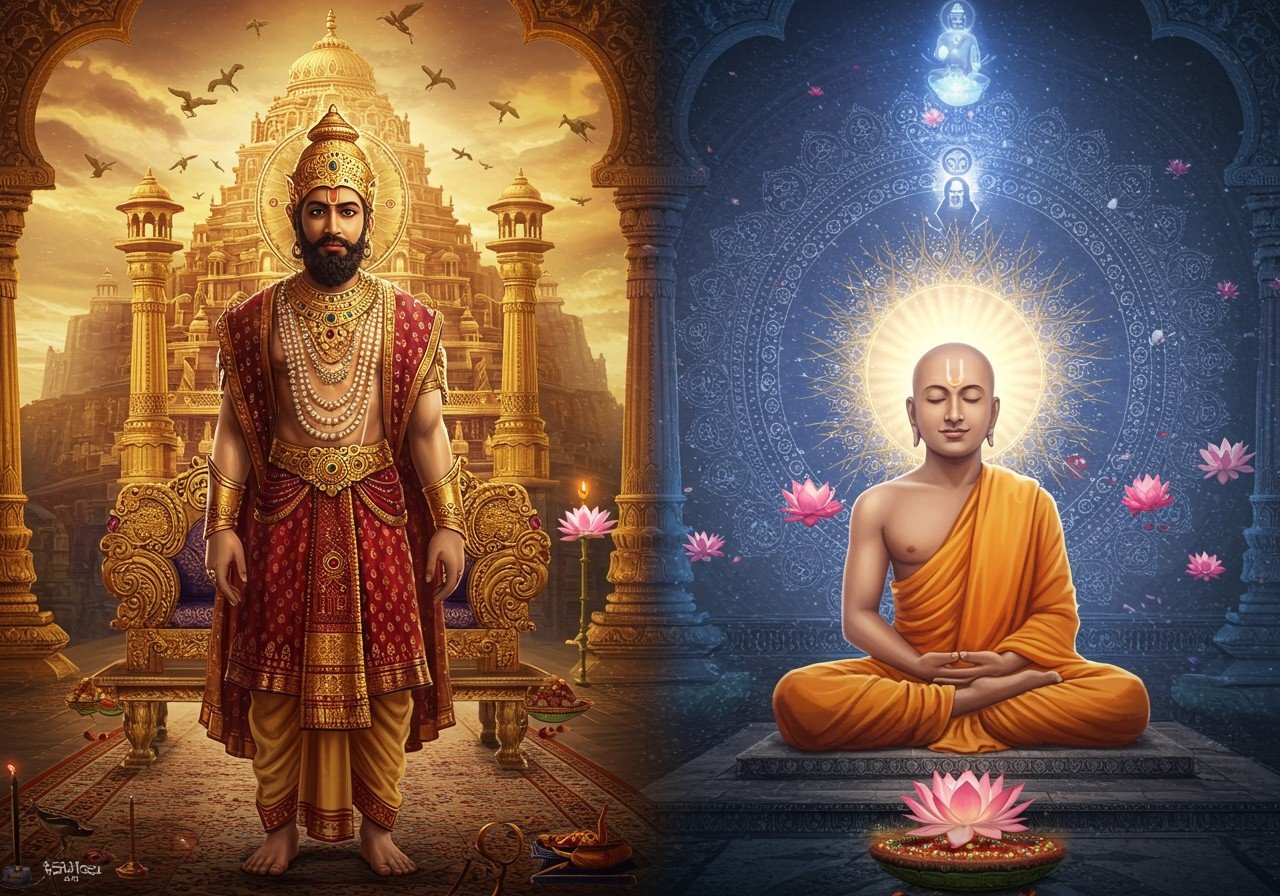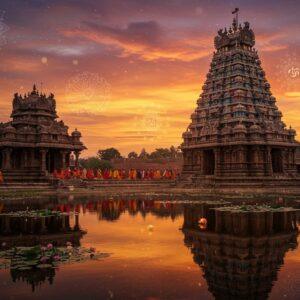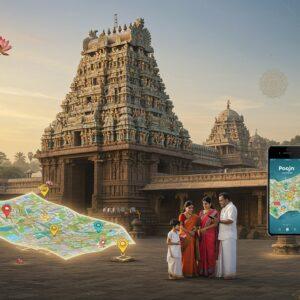
Chandragupta Maurya, the founder of the Mauryan Empire, is renowned for his remarkable transition from a powerful emperor to a devout follower of Jainism. This spiritual journey offers valuable insights into the interplay of politics, religion, and personal transformation in ancient India. This article delves into the reasons behind his embrace of Jainism and its profound impact on his legacy.
Historical Background – Chandragupta Maurya’s Early Reign
Chandragupta Maurya’s ascent to power began under the mentorship of Chanakya. After overthrowing the Nanda dynasty, he established the Mauryan Empire, demonstrating exceptional military and strategic acumen. His reign witnessed significant administrative and economic reforms, unifying much of the Indian subcontinent. During this era (around the 4th century BCE), Hinduism, Buddhism, and Jainism were prominent religions. Chandragupta’s diplomatic endeavors included a significant alliance with Seleucus I Nicator. His eventual abdication in favor of his son, Bindusara, paved the way for his spiritual quest.
Chandragupta Maurya’s Adoption of Jainism
Jainism’s core tenets of non-violence (Ahimsa), truth (Satya), and asceticism resonated deeply with Chandragupta. The Jain monk Bhadrabahu played a pivotal role in guiding him towards these principles. Historical accounts and legends emphasize their encounter as a catalyst for Chandragupta’s spiritual transformation. This conversion had far-reaching socio-political implications, influencing governance and policies even before his abdication. His renunciation of worldly pleasures mirrored the essence of Jain philosophy. Historical evidence, such as the Chandragiri hill inscription, supports the account of Chandragupta spending his final years in penance at Shravanabelagola in Karnataka.
Life as a Jain Ascetic
As a Jain monk, Chandragupta dedicated himself to rigorous ascetic practices. Sallekhana, the ritualistic fast unto death, held profound significance in his life, embodying the Jain values of detachment and liberation. His life at Shravanabelagola involved interactions with Bhadrabahu and other monks within the Jain community. Chandragupta’s ascetic life significantly shaped his legacy, perceived by both contemporaries and later generations as a remarkable transformation. His journey echoes that of other historical figures who relinquished power for spiritual pursuits, creating an enduring legacy within Jainism and Indian history.
The Influence of Jainism on the Maurya Empire and Legacy
Chandragupta’s conversion significantly influenced the Mauryan Empire. Subsequent rulers, including Bindusara and Ashoka, continued to foster religious tolerance. Jain principles permeated governance, emphasizing non-violence and truth. The cultural landscape of India benefited from Jain influences, evident in architectural marvels like pillars and stupas. Shravanabelagola remains a vital pilgrimage site, deeply connected to Chandragupta’s final years. Texts like the 12th-century Parishishtaparvan by Hemachandra, though written centuries later, document Chandragupta’s association with Jainism, illuminating his spiritual journey and its impact on Indian history.
FAQs on Chandragupta Maurya’s Spiritual Transformation
What led Chandragupta Maurya to Jainism? Chandragupta Maurya’s shift towards Jainism stemmed from the influence of the Jain monk Bhadrabahu and the profound appeal of Jainism’s principles of non-violence, truth, and renunciation. These principles resonated with his growing spiritual inclinations.
How did Jainism change Chandragupta Maurya’s life? Embracing Jainism led Chandragupta Maurya to abdicate his throne and embrace a life of rigorous asceticism. He dedicated himself to practices like fasting, meditation, and adherence to the principles of non-violence and simplicity, marking a dramatic change from his life as an emperor.
Where did Chandragupta Maurya practice Jainism? After renouncing his throne, Chandragupta Maurya journeyed to Shravanabelagola in present-day Karnataka, India, with Bhadrabahu. This became his spiritual home where he spent his last years immersed in Jain ascetic practices.
Poojn.in: Supporting Your Spiritual Journey
Inspired by Chandragupta Maurya’s spiritual quest? Poojn.in, India’s leading online store for cultural and religious goods, offers a wide selection of products to support your spiritual practices. Explore our collection of:
- Idols and Murtis: Find beautifully crafted idols of deities like Lord Shiva, Ganesha, and Lakshmi, perfect for creating a sacred space in your home. These murtis are available in various materials like marble dust and brass.
- Puja Samagri: From incense sticks and diyas to puja thalis and havan kund, we provide all the essential items for performing various pujas and rituals. We offer high-quality camphor and other puja essentials.
- Spiritual Books and Resources: Deepen your understanding of Jainism and other spiritual traditions with our collection of books, scriptures, and guided meditation resources. Explore recipes for Ganesh Chaturthi and other festivals.
Visit poojn.in today and embark on your own path of spiritual discovery. We offer pan-India delivery and secure packaging to ensure the sanctity of your spiritual items.


